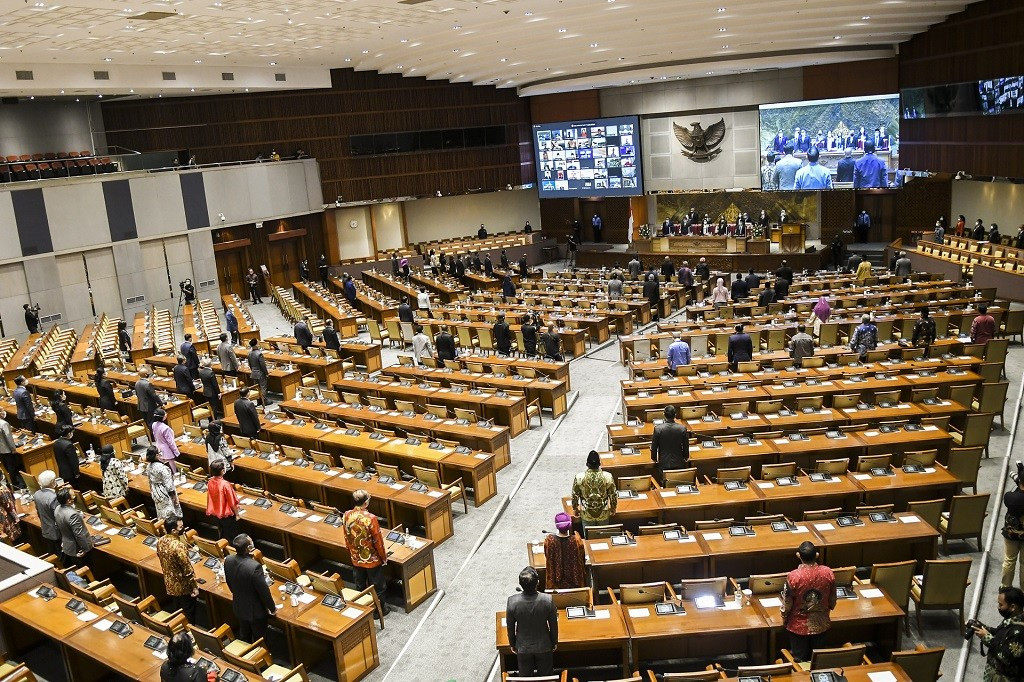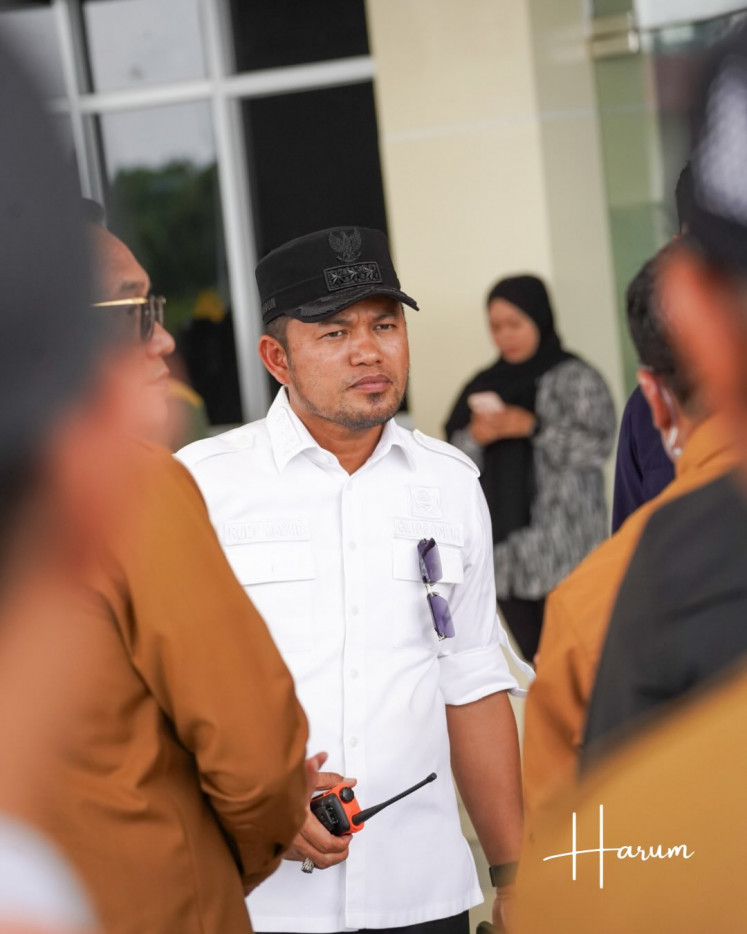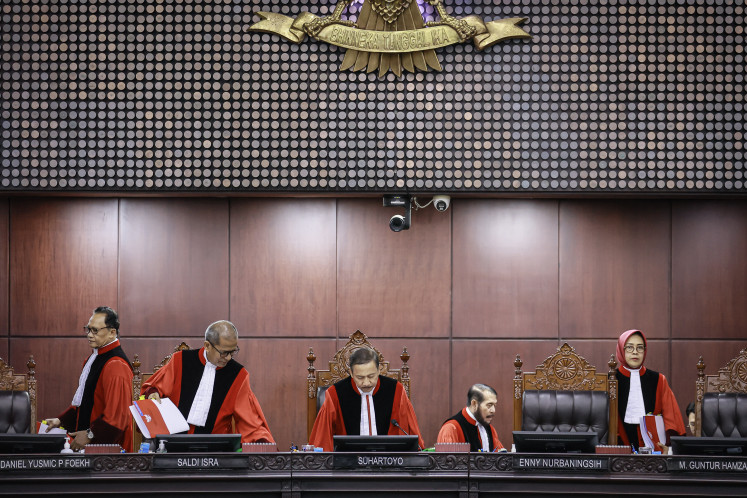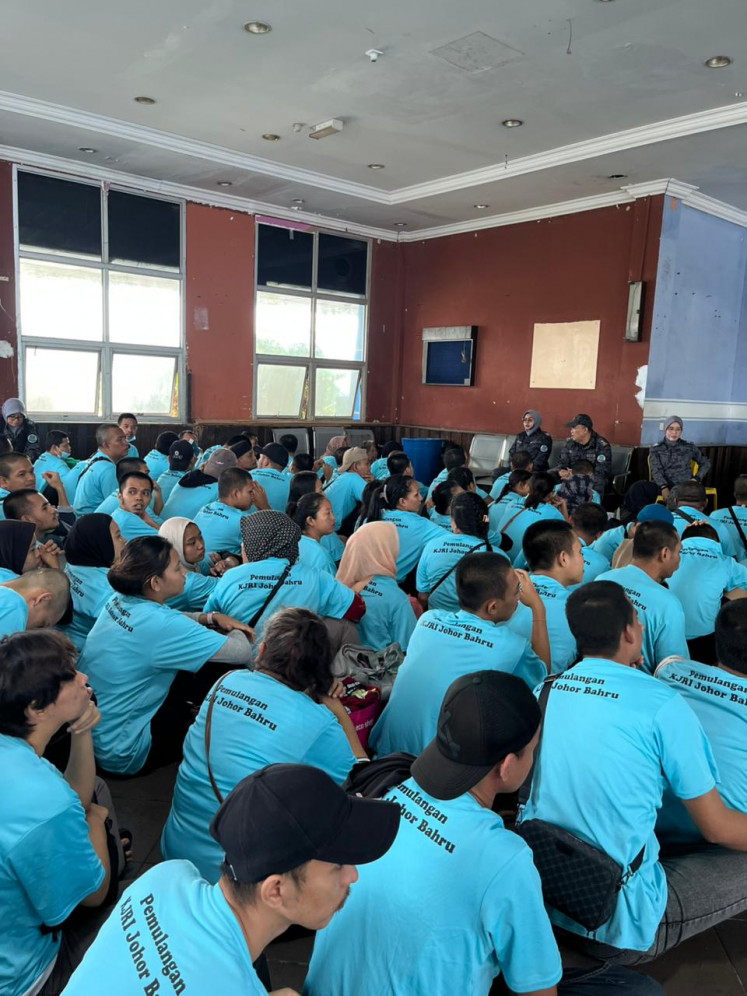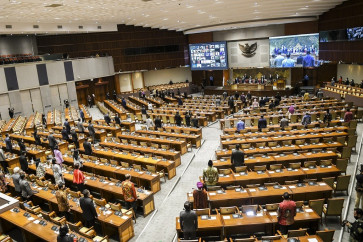Popular Reads
Top Results
Can't find what you're looking for?
View all search resultsPopular Reads
Top Results
Can't find what you're looking for?
View all search resultsPolitical dynasticism rampant in newly elected House lawmakers
According to a recent study by CSIS, 138 of 580 elected lawmakers during the 2024 election have influential political ties, a phenomenon that might create an unlevel playing field for contenders fighting for seats in legislative bodies.
Change text size
Gift Premium Articles
to Anyone

Powerful political families have appeared to retain their grip on Indonesian politics as a growing number of legislators elected in 2024 come from influential political dynasties whose members hold office in legislative and executive institutions.
A study by the Jakarta-based Centre for Strategic and International Studies (CSIS) released on Wednesday found that 138 legislative candidates, or 24 percent of the 580 elected in the February election, have familial and kinship relations with incumbent politicians or public officials.
In February, nearly 10,000 candidates nationwide competed for 580 seats in the House of Representatives.
For the study, CSIS looked at the General Elections Commission’s (KPU) tabulation results for the legislative election. The researchers later estimated the number of seats obtained by each party using the Sainte-Laguë method.
The think tank also looked at candidates with the most votes from each party in every election district.
The poll body will not release the number of seats obtained by each party in the House until June, when the Constitutional Court settles all legislative election dispute petitions.

Read also: House of old men: 2024 election sees lowest number of young lawmakers

